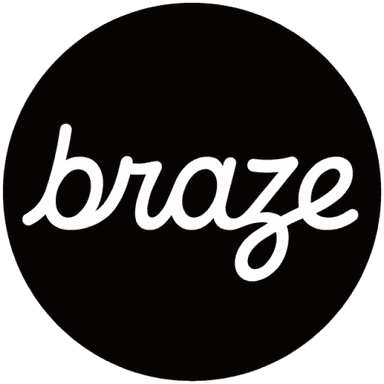What It’s Really Like to Work in Tech Sales
Published on February 23, 2022/Last edited on February 23, 2022/5 min read


Team Braze
Whether you’re a Business Development Representative (BDR) or Account Executive (AE), building a career in sales involves more than just making pitches. At Braze, the goal of the BDR is to drive new business pipeline and, ultimately, closed won business. BDRs do extensive research on brands, use their creativity to send personalized messaging, and orchestrate discussions with senior executives around their business needs.
To gain a better understanding of the role, Stephanie Nicololas, DEI Program Manager at Braze, sat down with Máyo Fadina, Account Executive (S2) at Braze, to discuss what makes a great BDR, what doors sales can open for you, and what it’s like working at Braze.
How did you learn about tech sales?
Believe it or not, I always knew that I wanted to be in some kind of sales or client-facing role—I just like to be around people. After graduating college, I worked in finance for about a year, but I did not enjoy it. It’s also important to recognize when you’re not good at something. I’m really into personal development, so I was reading all these books on how to be better at what you do, but it just didn’t translate.
But then a cool thing happened. One day, I kind of played hooky from work and went to Tech Day New York. It was April 28, 2014. I walked around for two or three hours, and as I’m walking about, I stopped by one last booth and talked to the CEO. There was something about the interaction—we both came from big families and were the youngest—and he ended up becoming my mentor. He helped me find a job in tech sales.
At first I didn’t know what I was doing, but I had a passion for it. When I was going to work every day, I was learning, I was passionate, and I went from knowing nothing about lead gen, acquisition, or writing emails to speaking with CEOs and founders every day, doing reporting and analytics to find out what’s working, and building a big network. That company was built on the lean startup methodologies—agile research, user experience, experimentation, seeing what works—and that mindset has always been a part of how I work.
What personality traits or values do you think makes a great BDR?
A blend of self-awareness and lack of self-consciousness. There are always things you can improve upon, but you need to know what to take personally and what to not. There’s going to be rejection, and you have to move on. Knowing how to connect with people immediately is important, too, and having the ability to experiment helps you be successful. Another trait that makes a good BDR is empathy. Learn how to listen and focus on what is important to the person you are speaking with, because even the highest-ranking executives are heard but seldom understood.
What did your path from BDR to AE look like?
The transition was tough—I had to work on organization, my presentation skills, and my ability to drive a conversation in a deal forward. The biggest thing was learning to have patience with myself while I’m working to understand the customer, their business, and what drives them forward. Once I understood this, that’s what made the difference for me. Once I was able to understand and articulate that, my career completely changed.
How would you pitch this career?
A level of motivation is important—if you don’t have it, you have to find it. Being a BDR is a great way for you to discover other aspects of yourself that might be useful. You could find out you’re very good at talking about a product, or you're a very technical person but don’t have a technical background. In a case like that, you can use being a BDR as a springboard and go into solutions engineering (a technical-leaning role that supports sales cycles). It could also be a springboard to go into marketing or marketing operations. You’ll also learn to better understand, level, and connect with people, to understand the psychology of decision-making and motivations, which is going to be very important in your life no matter what you do.
Why should people consider working at Braze?
They should consider working at Braze for two reasons. One is that it’s a great learning opportunity. If you’re a curious person who wants to grow, learn, and develop, joining Braze will teach you marketing, technology, product, and even how to understand and work with other people. Second, there’s an amazing team here that genuinely wants you to be here. I feel incredibly welcome and supported. I could reach out to any executive right now and have a 30-minute conversation with them just to pick their brain. It’s important to be in an environment that facilitates growth and where you can actually see where you want to go, and Braze offers that.
Are you interested in joining Braze? Check out this link and explore our current opportunities to join the BDR team.
*This conversation has been edited for length and clarity
Related Tags
Be Absolutely Engaging.™
Sign up for regular updates from Braze.





